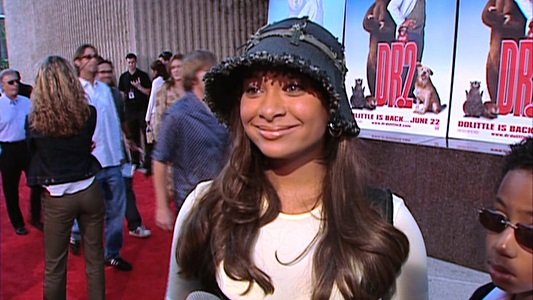(CNN) — I get it. Raven-Symone doesn’t like labels. But she is wrong to run away from her blackness, seemingly hoping that no one acknowledges her beautiful brown skin and the history written all over her face.
“I’m tired of being labeled. I’m an American. I’m not an African-American. I’m an American.” The former star of “The Cosby Show” and “That’s so Raven” told Oprah Winfrey. “I mean, I don’t know where my roots go to. I don’t know how far back they go. … I don’t know what country in Africa I’m from, but I do know that my roots are in Louisiana. I’m an American, and that’s a colorless person, because we’re all people. I have lots of things running through my veins.”
Many of us have been exactly where she is, struggling to fit in. Trying to be “colorless” when there’s no way to look at someone without noticing appearance. And that includes color.
But Raven’s dilemma is part of the black experience in America. Our identity is not really a matter of choice. Black people were forefathers of this nation: slaves, soldiers, scholars and dedicated women and men who helped create these United States of America. For me, rejecting your blackness is downright un-American. The two words are inseparable. Being black equals being American.
So no matter how she tries to deny us, Raven is still ours, still black in the eyes of her community. And we remain proud of her. Proud and patient because we understand how the heavy burden of labels can crush your spirit and get in the way of your dreams.
I’ve struggled all my life with the weight of labels. They pop up at the most awkward times: introductions at work meetings, compliments over dinner, amongst friends and foes. Sometimes it feels like society is at once confused, intrigued and resentful of my blackness. And I’m certain that black woman are described with more adjectives than anyone on the planet: Black woman, African-American, bossy, strong black woman, articulate black woman, working mother, black entrepreneur, black single mother, straight ally, LGBT-friendly, divorcee, feminist, liberal and now even black-ish woman. When I was younger it was a latchkey kid, project kid, kid from a broken home.
One of my favorite is La Negrita. The first time I visited Central America and heard a local call me that name, I immediately went into my Angry Black Woman mode. It took a few minutes to calm down and understand that in Latin America, La Negrita is a term of endearment, a compliment meaning something closer to beautiful black woman. Who knew? There’s even a national holiday in Costa Rica called “Día de la Negrita.”
“I bet your country would never have a holiday honoring black women,” a friend in Costa Rica joked one day, when I asked her why everyone was celebrating. No, I had to agree. We are a long way from that day.
I’m not sure when this notion first clicked for me, that you cannot be black in this nation without also claiming your American-ness.
Maybe it was years ago after my great-aunt Rosie showed me a photo in our family album of one of my ancestors gallantly posed in his Civil War uniform.
That soldier was a black American.
Or, when my aunt talked with pride about her father who couldn’t read or write in any language but was a successful French chef in the South.
That chef was a black American.
Or, perhaps things became clear when my grandfather stood tall and told me about how proud he was to fight for his country, despite segregation. Now, Grandpop wasn’t a fancy, highly educated man. He never could imagine the glamorous Hollywood lifestyle of Raven-Symone.
Truth be told, he was in slightly in awe of my career in “this journalism stuff.” Unfortunately, he died before seeing a black family in the White House. Now that would have really tickled him. But Grandpop always believed hard work and education could get you places in this world.
He spent his life toiling in the bowels of our nation’s first Trident submarines, fitting those vessels with nuclear missiles. It was backbreaking work. He would take me to tour those subs and boast about America’s global power. He retired after nearly 50 years with a broken body but a proud heart for doing his part to keep America strong.
My grandfather was a black American.
No matter what label the world may choose to describe me, one thing I never doubt is that I am a strong black American woman, whose heart beats with the African and Caribbean blood of my ancestors. Knowing this gives me strength, courage and joy every day of my life.
I cannot imagine ever separating myself from all of the courageous people who came before me to break down barriers, share their wisdom and pave the way so my journey is just a little bit smoother in this life. And in spite of her protests when Raven looks back just a bit, she’ll understand: She is also, among other things, a black American.
Roxanne Jones is a founding editor of ESPN The Magazine and a former vice president at ESPN. She is a national lecturer on sports, entertainment and women’s topics and a recipient of the 2010 Woman of the Year award from Women in Sports and Events. She is the co-author of “Say It Loud: An Illustrated History of the Black Athlete” and CEO of the Push Marketing Group. The opinions expressed in this commentary are solely those of the author.
The-CNN-Wire
™ & © 2014 Cable News Network, Inc., a Time Warner Company. All rights reserved.
